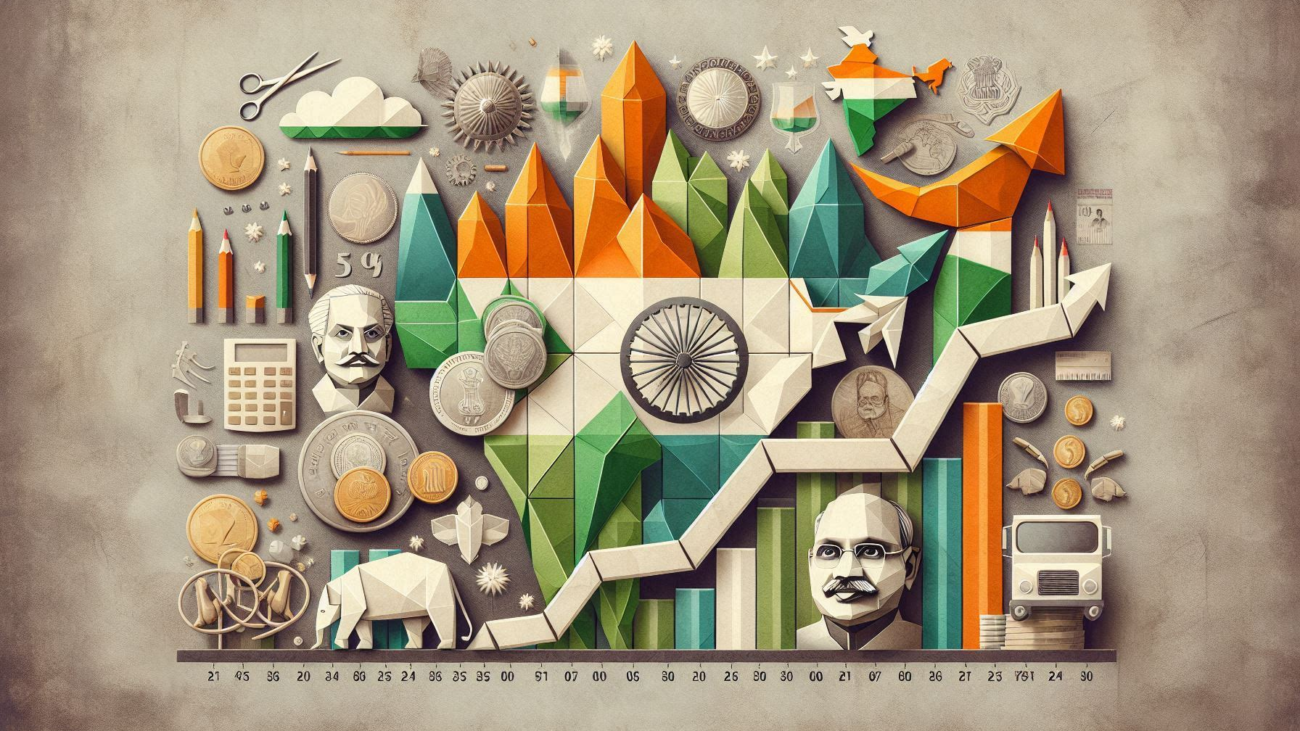India’s economic landscape is rapidly evolving, presenting opportunities to enhance the key sectors of agriculture, smart cities, healthcare, and small and medium enterprises (SMEs). Over the next 40 years, strategic economic policies must address current challenges and leverage technological advancements to drive sustainable growth and development.
Agriculture: From Traditional Practices to Smart Farming
Current Policies and Challenges
Agriculture remains the backbone of India’s economy, employing nearly half of the workforce. Current policies, such as the Pradhan Mantri Kisan Samman Nidhi (PM-KISAN) and the National Agriculture Market (e-NAM), aim to provide financial support and improve market access for farmers. However, challenges like fragmented landholdings, inefficient water use, and dependence on monsoons persist.
Future Improvements
- Smart Irrigation Systems: Implementing IoT-based smart irrigation systems can optimize water use and enhance crop yields.
- Precision Agriculture: Utilizing drones and satellite imagery for precision farming can help in monitoring crop health, soil conditions, and weather patterns.
- Blockchain for Supply Chain: Blockchain technology can streamline the agricultural supply chain, ensuring transparency, reducing waste, and improving farmers’ income.
- Sustainable Practices: Promoting sustainable farming practices, such as organic farming and agroforestry, can improve soil health and productivity.
Smart Cities: Building Sustainable Urban Ecosystems
Current Policies and Challenges
The Smart Cities Mission, launched in 2015, aims to develop 100 smart cities with robust infrastructure, efficient resource management, and improved quality of life. Despite progress, issues like funding constraints, lack of integrated planning, and inadequate public participation hinder the mission’s success.
Future Improvements
- Integrated Urban Planning: Holistic urban planning that integrates land use, transportation, and housing can enhance city livability.
- Green Infrastructure: Investing in green infrastructure, such as parks, green roofs, and urban forests, can mitigate urban heat islands and improve air quality.
- Smart Grids and Renewable Energy: Developing smart grids and promoting renewable energy sources can ensure reliable and sustainable power supply.
- Public-Private Partnerships: Encouraging public-private partnerships can mobilize additional resources and expertise for smart city projects.
Healthcare: Moving Towards Universal Health Coverage
Current Policies and Challenges
India’s healthcare policies, including Ayushman Bharat and the National Health Mission, aim to provide affordable and accessible healthcare. However, challenges like inadequate healthcare infrastructure, shortage of medical professionals, and high out-of-pocket expenses remain.
Future Improvements
- Telemedicine and Digital Health: Expanding telemedicine services and digital health platforms can increase access to healthcare in remote areas.
- Health Information Systems: Implementing robust health information systems can improve patient care, disease surveillance, and healthcare planning.
- Training and Retaining Healthcare Workers: Investing in the training and retention of healthcare workers is crucial to addressing workforce shortages.
- Public Health Infrastructure: Strengthening public health infrastructure, including primary healthcare centers and public hospitals, can improve healthcare delivery.
Small and Medium Enterprises (SMEs): Catalysts for Economic Growth
Current Policies and Challenges
SMEs are vital to India’s economy, contributing significantly to employment and GDP. Policies such as the MSME Development Act and the Credit Guarantee Fund Scheme for Micro and Small Enterprises (CGS) support SMEs. However, challenges like limited access to finance, lack of skilled labor, and regulatory burdens persist.
Future Improvements
- Access to Finance: Enhancing access to finance through innovative financial instruments and credit schemes can support SME growth.
- Skill Development Programs: Expanding skill development programs tailored to SME needs can improve productivity and innovation.
- Digital Transformation: Promoting digital transformation in SMEs can enhance operational efficiency and market reach.
- Simplifying Regulations: Streamlining regulatory processes and reducing compliance burdens can foster a more conducive business environment for SMEs.
Conclusion
India’s economic policies in agriculture, smart cities, healthcare, and SMEs have laid a solid foundation for future growth. However, addressing current challenges and leveraging technological advancements are essential for sustainable development. Over the next 40 years, strategic policy improvements can transform these sectors, driving economic prosperity and improving the quality of life for all Indians. By fostering innovation, enhancing infrastructure, and promoting inclusive growth, India can build a resilient and thriving economy.

